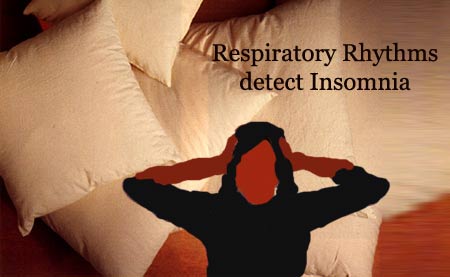While some us sleep in peace, there are some who struggle to sleep and get tired of tossing and turning on their beds due to Insomnia. Scientists from University of Rochester Medical Centre unravel the mystery where respiratory rhythms could be the key to predict chronic insomnia and sleep disruptions.
The study involved women with metastatic breast cancer and the researchers discovered that breathing, heart rates and cortisol levels could play a key-role in predicting insomnia. Lead author Oxana Palesh, Ph.D., research assistant professor at Rochester’s James P. Wilmot Cancer Centre mentioned that the identifying the body’s parasympathetic nervous system, a branch of the autonomic nervous system which plays a role in controlling the breathing and heart rates and the body’s response to stress could be the link behind poor sleep. This is usually faced by women suffering from breast cancer.
“We were able to identify the role that the parasympathetic nervous system plays in insomnia. It’s reasonable to suggest that simple breathing exercises may help more than we realize with insomnia,” remarked Oxana Palesh.
Well if we have a problem, we sure do search for solutions, speaking on solutions Palesh suggests that regulating deep diaphragmatic breathing through yoga, meditation and other techniques could prove to be beneficial in prevention insomnia and sleep disorders in cancer patients.
The Study observed 99 women with metastatic breast cancer or recurrent disease over 45 years old and out of which metastatic breast cancer or recurrent disease. When further observed, the scientists measured the participants’ heart rate during a stress task and they discovered that lowered heart rate variability was linked to the efficiency of their sleep.
They also noticed that most women spent approximately eight hours in bed at night, but had on average 15 wake episodes in the night with each episode lasting about 5 minutes, for a total of 71 minutes.
Insomnia can sure be disturbing and can hamper one’s quality of life. However such studies sure can give a few clues as to how to combat this sleep disorder.
The study is published in the Journal of Clinical Sleep Medicine.

